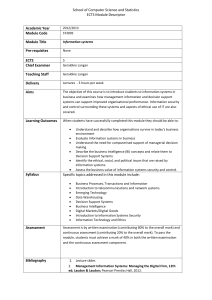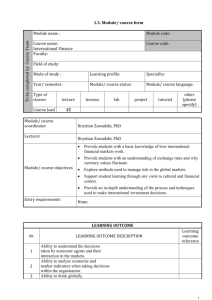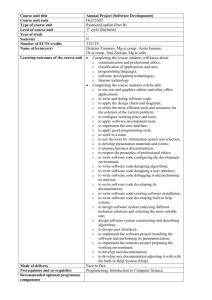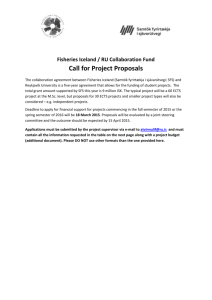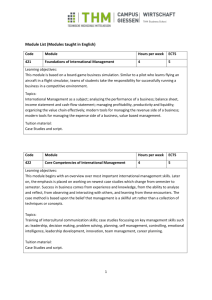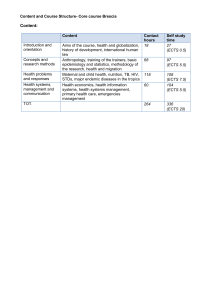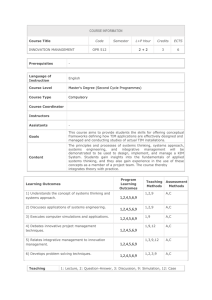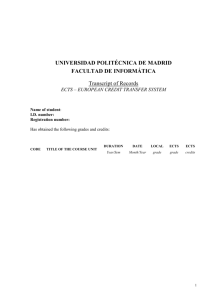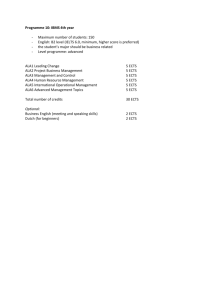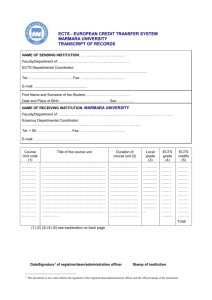ECTS course syllabi Institute of English Studies Module Introduction
advertisement
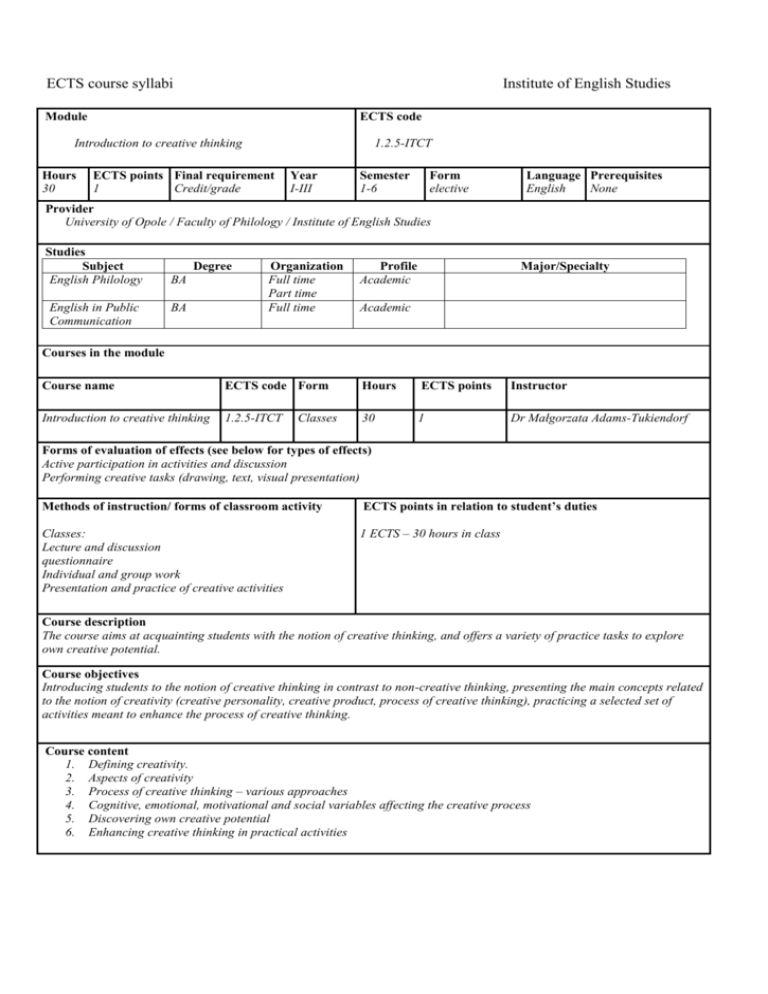
ECTS course syllabi Institute of English Studies Module ECTS code Introduction to creative thinking Hours 30 1.2.5-ITCT ECTS points Final requirement 1 Credit/grade Year I-III Semester 1-6 Form elective Language Prerequisites English None Provider University of Opole / Faculty of Philology / Institute of English Studies Studies Subject English Philology English in Public Communication Degree BA BA Organization Full time Part time Full time Profile Academic Major/Specialty Academic Courses in the module Course name ECTS code Form Hours ECTS points Instructor Introduction to creative thinking 1.2.5-ITCT 30 1 Dr Małgorzata Adams-Tukiendorf Classes Forms of evaluation of effects (see below for types of effects) Active participation in activities and discussion Performing creative tasks (drawing, text, visual presentation) Methods of instruction/ forms of classroom activity ECTS points in relation to student’s duties Classes: Lecture and discussion questionnaire Individual and group work Presentation and practice of creative activities 1 ECTS – 30 hours in class Course description The course aims at acquainting students with the notion of creative thinking, and offers a variety of practice tasks to explore own creative potential. Course objectives Introducing students to the notion of creative thinking in contrast to non-creative thinking, presenting the main concepts related to the notion of creativity (creative personality, creative product, process of creative thinking), practicing a selected set of activities meant to enhance the process of creative thinking. Course content 1. Defining creativity. 2. Aspects of creativity 3. Process of creative thinking – various approaches 4. Cognitive, emotional, motivational and social variables affecting the creative process 5. Discovering own creative potential 6. Enhancing creative thinking in practical activities Reading list A. obligatory reading (to get a credit): A.1. used in class Michalko, M. (2006). Thinkertoys. A handbook of creative-thinking techniques. Berkley, Toronto: Ten Speed Press. Nęcka, E (2005). Psychologia twórczości. Gdańskie Wydawnictwo Psychologiczne. Sternberg., R. (1999). Handbook of creativity. CUP. A.2. used for self-study B. supplementary reading Effects Knowledge The student will have 1. a basic knowledge about the significance of cognitive processes and basic terminology related to cognitive processes (K_W01, K_W05, K_W016) Skills The student will be able to 2. identify and describe a range of cultural products both creative and non-creative. (K_U01) 3. communicate in English with the use of various communication modes and techniques (K_U09; K_U13, K_U14) 4. collaborate with other students in English (K_U12) Social competences 5. The student will recognizes priorities and objectives in activities focused on searching and deepening knowledge in a selected aspect of study (K_K07) Contact dr M. Adams-Tukiendorf maadtu@gmail.com


